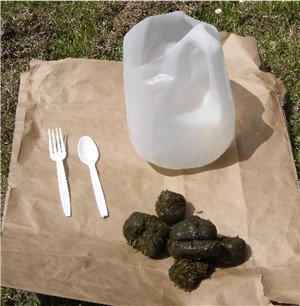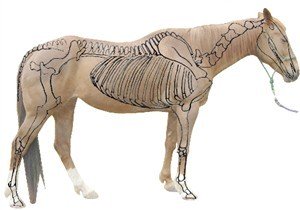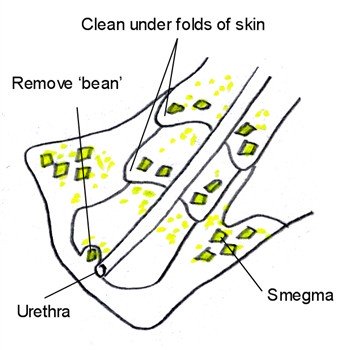Horse Diseases: Common Equine Ailments
What is it and How to Cure it!
Written in Plain English for the Average Horse Owner
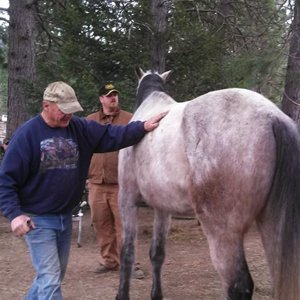 Most horse diseases are preventable
Most horse diseases are preventableBone spavin is one of the top sport horse related injuries that owners and veterinarians face. Learn how to manage a horse with hock arthritis.
A bowed tendon that is not properly treated and allowed the necessary time to heal can leave a horse unsound for life.
Cellulitis in Horses can get ugly quickly. Learn how to spot and treat this fast moving bacterial infection in equines.
Cushings disease in horses is a disorder of the pituitary gland. The middle lobe of the pituitary gland becomes enlarged and over produces hormones. Equine cushings disease can be controlled.
Horse allergies are very similar to human allergies. Equines can suffer from airborne, seasonal, insect and food allergies. Allergy symptoms in horses can range from a slight runny nose to diarrhea.
Horse Eating Horse Poop can be very frustrating and alarming. Learn how to stop it.
Horse colic can come on fast and is life threatening to equines. It is crucial that every horseman know the signs of colic, understand the causes, and seek veterinary treatment promptly when needed.
Equine choke is the blockage of the esophagus by food or foreign object, usually food. Yikes! Horses most often choke on dry grain that is greedily eaten or hay that is improperly chewed.
Equine eye problems can be caused by injury, allergies, viruses and parasites. Eye problems can be tricky because there are so many causes; some mild and easy to treat, and some very serious.
Equine founder can be a death sentence for a horse. But founder that is treated quickly and managed properly can result in a horse capable of a long, healthy and useful life.
Equine metabolic syndrome puts horses at an extremely high risk for crippling laminitis.
Equine recurrent uveitis, also called moon blindness, is caused by the Leptospriosis bacteria or the Onchocerca cervicalis parasite. Equine uveitis is the number one cause of blindness in horses.
Equine scratches, is a chronic skin condition that effects the horses fetlock area. Learn the effects, symptoms and treatments for horse scratches now.
Equine strangles is another term for equine distemper. Strangles is a highly infectious disease that affects the upper respiratory tract of horses.
Navicular disease - What is it and how is it treated? Navicular is a bone and tissue disorder that occurs in the front hooves of horses. Recent findings show that navicular can be managed.
Selenium deficiency in equines can be corrected to prevent horse diseases like infertility in adult horses and white muscle disease newborn foals.
Thrush in horses is a condition that affects the frog of the horses hoof, a very unhealthy condition for your horses soundness. Learn how to recognize and easily treat equine thrush.

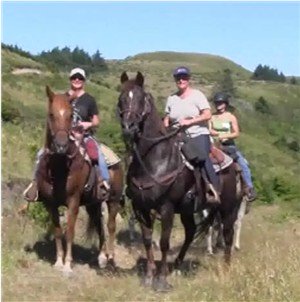 Knowledge is half the battle to avoiding horse diseases.
Knowledge is half the battle to avoiding horse diseases.If you're like most horsemen, you don't think about horse diseases much.... until your mare or gelding gets sick. And as you can guess, whenever something goes wrong with your 'baby' all the emotions come flooding in.
You feel worried and guilty and fearful and even panicked by the diagnosis of a disease. You find yourself thinking, "How could I have prevented this?" and "Why didn't I see this coming?" and "How could I have been so stupid!"
Then come the big scary questions. Will my horse be alright? Will I still be able to ride him like I used to? Is there a cure for this? How long will it take to heal? How much is this going to cost me? Can I afford the treatment?
This map tracks large animal infectious diseases in real time http://www.wormsandgermsmap.com/
Developed by Dr. Scott Weese of the University of Guelph and Dr. Maureen Anderson from the Ontario Ministry of Agriculture and Food
How many horseman know that most horse diseases are preventable with good quality care? The trouble is, one weak link in the care chain can get your animal caught up in disease and illness.
8 Areas Horse Owners Get into Trouble with their Equines:
Quality Care Goes a Long Way
There's a reason why we are still able to use our little 28 year old mare on the trail!
- Feed
- Hooves
- Teeth
- Housing conditions
- Vaccines
- Environmental conditions
- Strenuous riding
- Ignorance
The more you know about horse diseases, the faster you will be at spotting potential problems. Even better yet, you will know how to AVOID them. I encourage you to read about the equine diseases on this site. Knowledge is powerful! A few minutes spent reading can make all the difference in the world.
Many diseases like equine scratches creep up slowly. You can learn how to avoid common pitfalls in horse care that lead to illness and disease. I was surprised to learn how small precautions taken today can pay off big, well into a horse’s senior years. I’m sure you will be too.
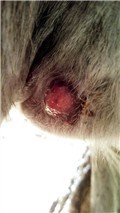 Spider bite on a BLM Donkey
Spider bite on a BLM DonkeyCaring for equines is a skill set that every horsemen builds over a lifetime. There is always something more to learn about equine husbandry. It's not fun to be caught off guard when it comes to your horse's well being. The price for ignorance to too heavy. I know the heartache of loosing a horse to emphysema and one to colic.
You don't have to make the same mistakes or
learn about horse diseases the hard way.
When my mare showed up one day with lice, I was dumbfounded. At the time I didn't even know what an equine louse was let alone how she managed to get them! Could they get on me? And what about our other horses?! Suddenly I was very interested in learning about the right horse medicine!
Health issues are a fact of life. The longer you're around horses the more likely you will run into health problems one way or another...injury or disease.
As a dedicated horse owner, you'll want to grow your knowledge base when it comes to horse diseases. Please don’t wait until it’s too late. What you learn today can save the life of a horse tomorrow. Not just your horse, but maybe that of a dear friend. I sincerely wish both you and your horses a long happy healthy life together!
More Equine Topics You May Enjoy
Easy Sand Test
Easy Sand Test - An easy sand test at home is a simple way to find out if your horse has sand in their gut. If your horse tests positive, you can do something about it.
Bumper Stickers

Equine themed bumper stickers perfect for your truck and trailer.
Horse First Aid Kit
Find out what items you need to build a well rounded horse first aid kit for your barn, your truck and on the trail.
